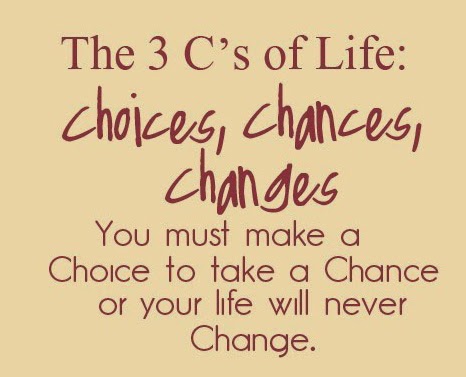“You never really know a [wo]man until you understand things from his [her] point of view, until you climb into his [her] skin and walk around in it.”—Harper Lee
When a person seeks to learn and ultimately comes to understand another’s viewpoint, that person gains greater understanding and insight into their own worldview. Harper Lee succeeded in opening the eyes of her readers into the injustices suffered by African Americans through the obviously falsely accused character of Tom Robinson in her famous novel To Kill a Mockingbird. Similarly, Amy Tan opened the curtains on the world of the Asian-American experience through the publication of her novel The Joy Luck Club and the subsequent movie that was made based on her book.
I sat in the darkened theater and was mesmerized by the unfolding of the story that takes place in settings so foreign to me that they may as well be happening on another planet. Having the opportunity to see into a culture that is so unfamiliar to me was fascinating, but it became even more fascinating when I saw myself in one of the characters. I sat up in my seat and thought, “My goodness, that’s me!” Then suddenly, the story was not only about first and second-generation Chinese immigrants making a new life in America. This story was about the universal themes of the common tug of war between mothers and daughters of all cultures. Mothers who want their daughters to have the opportunities they never did, and the daughters trying to pull away and forge their own identities. This conflict plays out through the telling of stories from each of the characters’ points of view. It is in the telling of these stories that the limitations and the sometimes impossibility of reconciliation amongst the generations is revealed. (Adams)
For Amy Tan it was when she entered into her mother’s world by listening to her that she gained insight into her own world and grew in understanding of her identity. It was through these explorations into her mother’s past that Tan grew to admire rather than try to disown the contributions her mother made into her life and the woman she is. (Champion) Amy Tan was born in Oakland, California to Chinese American parents. Her father and brother both died within 8 months of each other leaving her mother to raise Amy and another brother alone. After briefly living in Switzerland, Amy and her family moved back home to the Bay Area in California, and Amy entered the college chosen by her mother and, at her mother’s insistence, she majored in pre-med with the expectations of going onto medical school. Amy withdrew from majoring in pre-med when she transferred to a different college and decided to major in English and linguistics causing further angst between her and her mother. However, when she later became successful as a business writer, her mother took great pride in her accomplishments. In the 1980’s, Amy delved into reading contemporary fiction and joined a writer’s workshop through the University of California in Irvine, and this opened up the world of creative writing and led to the works for which she is known. (Amy Tan)
Amy Tan explored the themes of competing viewpoints amongst mothers and their daughters in her writings at a time when those mothers were brought up in a way their daughters despised and were trying to break free from. (Braendlin) These mothers were raised in a traditional patriarchal society in which their worth was measured by “the loudness of their husband’s belch,” and they were determined that would not be the criteria that would determine their daughters’ worth. These mothers yearned for their daughters to rise above their station in life and to never experience sorrow as they did. But more than that, these mothers wanted their daughters to understand their good intentions for them. This is beautifully described in the introductory story, “Feathers From A Thousand Li Away,” that begins the tale of The Joy Luck Club. (Tan)
Ultimately, it is understood that both mothers and daughters have an underdeveloped sense of their own identity and self-worth. The mothers are bound to the expectations of a world that no longer exists, and the daughters are bound by expectations to achieve their mothers’ hopes. The mothers are looking for their identity and self-worth in their daughters’ lives, while the daughters are desperately trying to break free so they can forge their own existence and experience Chi—to feel truly alive, full of breath and energy. Both mothers and daughters are trying to break free from the world they were born into, but in the end, both mothers and daughters are forced to return to the world of their origins before they can move on. (Shear)
This reminds me of the many accounts of the children of holocaust survivors who struggle because their parents are unable to talk about the past. Without knowing the past, they cannot understand their present, and they have a limited sense of who they are and who they are meant to be. It is the same with the characters in The Joy Luck Club. The mothers are hesitant to disclose their pasts, but until they do, their daughters are doomed to unwittingly repeat the same patterns of dysfunction. It is as the mothers tell their stories and the daughters listen to their memories that meaning is forged not out the events that happened but upon the events that are happening now as each is able to embrace that meaning. (Xu)
The story of The Joy Luck Club begins at a Mahjong table with Jing-mei taking her expected place at the table replacing her mother who recently died. Around the table are her mother’s closest friends who she knows as her Aunties. Jing-mei learns that her half-sisters long thought dead are still alive in China, and her Aunties encourage her to travel to China so she can find them and tell them the stories they need to know about their mother. Jing-mei is shaken as she realizes that she did not know her mother well enough to tell her mother’s stories. This claim causes anguish among her Aunties whose fears are raised that their own daughters may not know them either. (Singer) Reaching back to the past and coming to understand the stories that shaped her mother into someone she thought she knew was a painful experience for Jing-mei. It was especially painful as she realizes and then accepts the fact that her perceptions about her mother were misinformed. It is incredibly sad that she can never connect with the person she now knows and understands her mother to be because her mother has passed on. However, with her new knowledge she courageously makes that journey to China to find her sisters and tell them about their mother.
It is a bittersweet ending to the novel, but also heartening to realize that when people can accept and embrace their origin then they can find a place of belonging and gain an understanding of who they are in the world and what they have to contribute to the greater good.
Works Cited
Adams, Bella. “Identity-In-Difference: Re-Generating the Debate About Intergenerational Relationships in Amy Tan’s The Joy Luck Club.” Studies in the Literary Imagination 39.2 (2006). 4 April 2020.
“Amy Tan.” Contemporary Literary Criticism 257 (2008). 4 April 2020. < https://link-galecom.ucrproxy.mnpals.net/apps/doc/H1102480000/GLS?u=mnaucrgodd&sid=GLS&xid=89717e97>.
Braendlin, Bonnie. “Mother/Daughter Dialog(ic)s in, around and about Amy Tan’s The Joy Luck Club.” Vers. vol. 120. 1999. Gale Literature Resource Center. Critical Essay, excerpt. 4 April 2020. < https://link-galecom.ucrproxy.mnpals.net/apps/doc/H1100018664/GLS?u=mnaucrgodd&sid=GLS&xid=f49ef0c7>.
Champion, Laurie. “Amy (Ruth) Tan.” Gale Literature Resource Center 312 (2005). 4 April 2020. <https://go-gale-com.ucrproxy.mnpals.net/ps/retrieve.do?tabID=T002&resultListType=RESULT_LIST&searchResultsType=SingleTab&searchType=BasicSearchForm¤tPosition=6&docId=GALE%7CH1200012496&docType=Biography&sort=Relevance&contentSegment=LRCDLB&prodId=GL>.
Shear, Walter. “Generational Differences and the Diaspora in The Joy Luck Club.” Gale Literature Resouce Center (1999). 4 April 2020. < https://link-galecom.ucrproxy.mnpals.net/apps/doc/H1100018661/GLS?u=mnaucrgodd&sid=GLS&xid=c4ad64b9>.
Singer, Marc. “Moving Forward to Reach The Past: The Dialogics of Time in Amy Tan’s The Joy Luck Club.” Journal of Narrative Theory 31.3 (2001): 324-352. 4 April 2020.
Tan, Amy. The Joy Luck Club. New York: G.P. Putnam and Sons, 1989.
Xu, Ben. “Memory and The Ethnic Self: Reading Amy Tan’s The Joy Luck Club.” MELUS 19.1 (1994): 3+. 4 April 2020. < https://link-galecom.ucrproxy.mnpals.net/apps/doc/A18607679/GLS?u=mnaucrgodd&sid=GLS&xid=84522179>.

 We also need to recognize that those who hurt us are themselves people who are in pain. We must also accept that we may be the cause of their pain, and we must allow them all the time that they need to travel this footpath for themselves to find it in their hearts to forgive us. If we can be humble enough to realize this, we can help those who hurt us in their journey by showing them kindness, which will in turn enable us to forgive and bring healing. After all, being kind is much better and more rewarding than being right.
We also need to recognize that those who hurt us are themselves people who are in pain. We must also accept that we may be the cause of their pain, and we must allow them all the time that they need to travel this footpath for themselves to find it in their hearts to forgive us. If we can be humble enough to realize this, we can help those who hurt us in their journey by showing them kindness, which will in turn enable us to forgive and bring healing. After all, being kind is much better and more rewarding than being right.
 What is it that determines the strength of a tree? We can all agree that the tree’s true strength is not in its beautiful foliage or the interesting twists of its branches or even the sweetness of the fruit it produces. The strength of a tree is determined by the depth of its root system and the quality of the soil in which it is planted. Yet, while a tree does not have a choice about where it is planted, we do. Most often we are able to grow our roots deeper in the soil in which our lives are planted and draw from the rich nutrients and water deep below. Sadly, sometimes as we dig deeper into the soil beneath us we discover that it is barren.
What is it that determines the strength of a tree? We can all agree that the tree’s true strength is not in its beautiful foliage or the interesting twists of its branches or even the sweetness of the fruit it produces. The strength of a tree is determined by the depth of its root system and the quality of the soil in which it is planted. Yet, while a tree does not have a choice about where it is planted, we do. Most often we are able to grow our roots deeper in the soil in which our lives are planted and draw from the rich nutrients and water deep below. Sadly, sometimes as we dig deeper into the soil beneath us we discover that it is barren.








